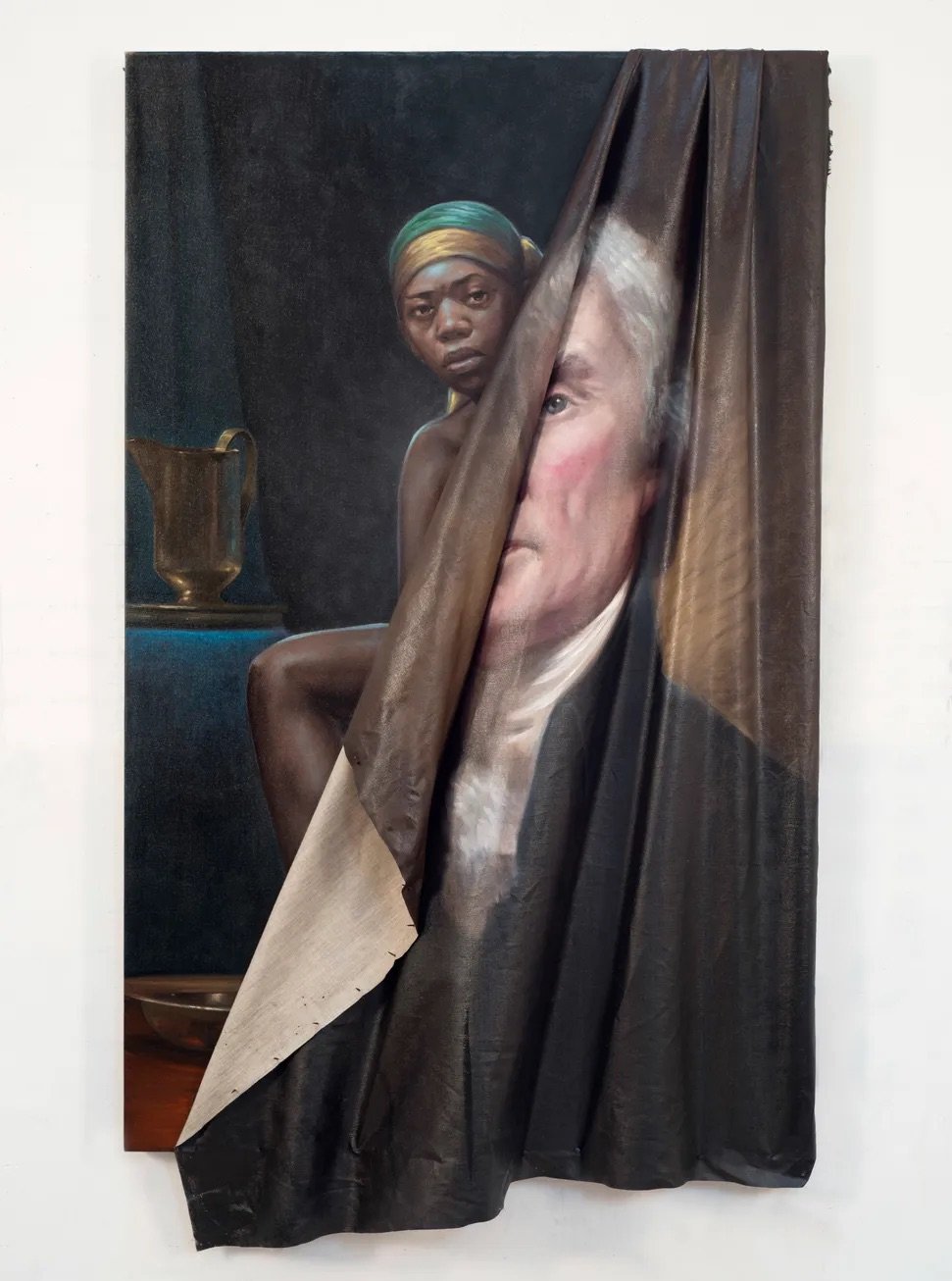Titus kaphar
Titus Kaphar is an artist, portraitist, and filmmaker who has built a name for himself for his commentary on political and criminal justice and reform. Kaphar's art confronts pressing social and political issues, but it also draws inspiration from his personal life narrative. His art is frequently three-dimensional and sculptural, with canvases cut and dangling from the frame or hung over another painting.
Kaphar was born in Kalamazoo, Michigan, in 1976. He first gained interest in art through his art history course in high school and later on taught himself how to paint by visiting museums.
He earned an BFA from San José State University and an MFA from Yale in 2006. He resides in New Haven, Connecticut, where his creations include painting, sculpture, video, and installation art.
On the left: From a Tropical Space, 2019
Kaphar uses the visual techniques and approaches of prominent European classicists like Diego Velázquez, Jacques-Louis David, and Théodore Géricault to reinterpret cultural empowerment stories with Black figures. His interaction with his estranged father, Jerome, also inspired him to create The Jerome Project, an ongoing multimedia investigation of the criminal justice system, which started in 2014. This photo series began with Kaphar's internet discovery of mug shots of 97 Black American men with the same first and surname names as his father.
On the left: Jerome I, 2014
Titus Kaphar challenges history by deconstructing and subverting classical structures and techniques of visual representation in Western art. He reveals the conceptual foundations of disputed nationalist origins and colonization histories, as well as how they have functioned to alter both cultural and personal identity, in order to comprehend and evaluate their influence on the present.
Kaphar’s works have been exhibited at the Brooklyn Museum, the Yale University Art Gallery, and more. Kaphar was also commissioned by Time Magazine for a piece commenting on the Furguson Uprising in 2014 and received a MacArthur Genius Grant in 2018.
On the right: Beyond the Myth of Benevolence, 2014
“I'm not a painter that believes you put a painting on the wall and it changes the world. I think it's a conversation starter. I think it can provoke questions. It can move us emotionally, but I believe strongly that, as artists, we need to engage the system in some broader ways if we want to see the changes in the world that we hope for, that we paint about.”
Above: Shifting the Gaze, 2017






